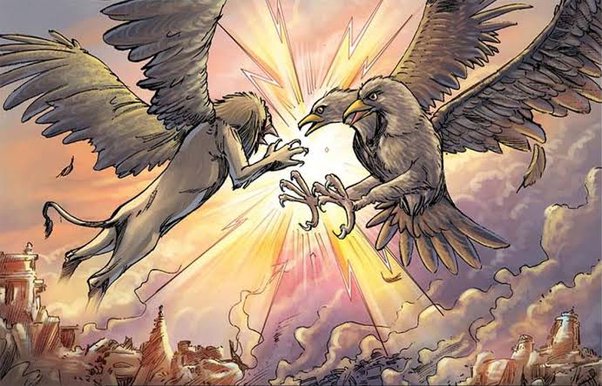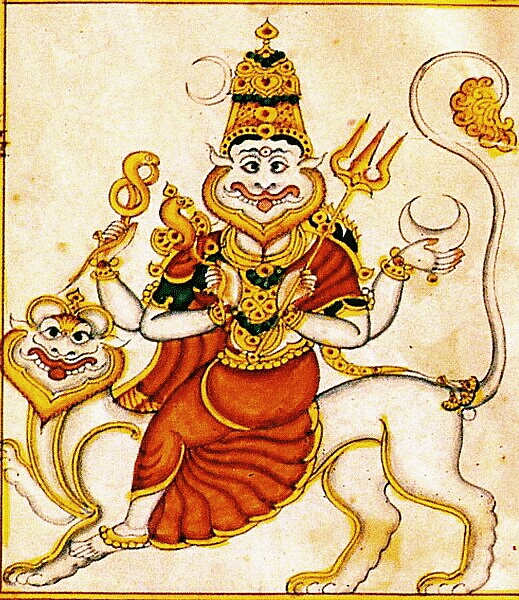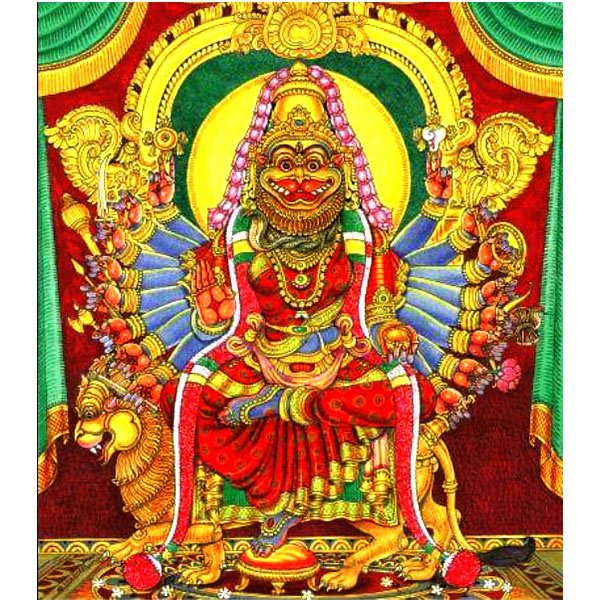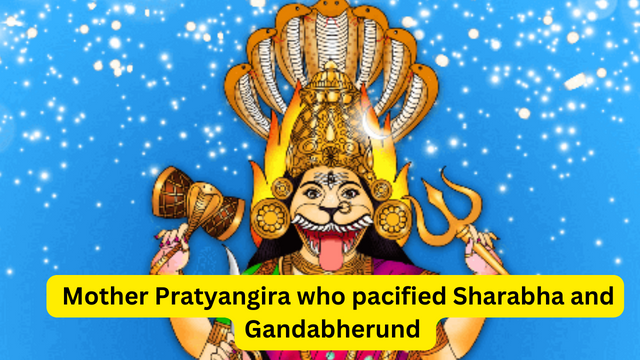Mother Goddess has taken many forms from time to time and has destroyed the wicked, sinners, and unrighteous people. Along with this, Mother has also taken many incarnations to show her glory, power, and might. One of her forms in this was the form of Maa Pratyangira which was very terrifying and devastating. She took this form not to kill any evil demon or demon but to end the ongoing war between Lord Shiva and Lord Vishnu. Let us know about that interesting incident.
Story of mother taking the fierce form of Pratyangira
This story is related to the incarnation of Lord Narasimha in Satyayuga and the killing of Hiranyakashyap. However, it has been described differently in different Puranas and scriptures. The oldest belief is that which was said by Lord Krishna himself, according to which Lord Narasimha, after killing Hiranyakashipu, declared Prahlad as his successor and disappeared.
That is, when Lord Narasimha killed Hiranyakashipu, his anger was calmed by Prahlad. After that, he coronated Prahlad and again merged into Lord Vishnu. But the story after this incident has been described in Shiva Purana, Skanda Purana, and some other religious scriptures. Today we will tell you about the same and explain why Mother had to take her fierce form Pratyangira.

The war between Lord Narasimha and Lord Sharabha
According to Shiva Purana, even after killing Hiranyakashyap, when the anger of the Narasimha avatar did not subside and he started wandering here and there, Shiva took the Sharabha avatar to calm his anger. This incarnation had two Garuda wings, a lion’s claws, a lion’s face, matted hair, and a moon. It was much bigger than the Narasimha incarnation.
Then Sharabha’s avatar caught hold of Lord Narasimha in his claws and started injuring him by pecking him. Seeing this, the Narasimha incarnation of Lord Vishnu became even more angry.
The battle between Lord Sharabha and Lord Gandbherund
Seeing this attack on himself, Lord Narasimha’s incarnation took an even more terrifying and bigger form. This was Gandabherund’s incarnation who had two bird faces. Now a fierce war started between Sharabha and Gandbherund avatar which continued for 18 days.
Due to their war, there was chaos in all three worlds. None of the three worlds had the power to stop the fierce war going on between the two. Gods, demons, and humans all were trembling with fear. Then Mother Adishakti appeared herself to stop their war for the welfare of the universe.

Pratyangira form of Mother Adishakti
With her power, Mother Goddess assumed a fierce incarnation whose face was like that of a lion. It contained the powers of the Sharabha incarnation of Shiva and both the incarnations of Vishnu (Narasimha and Gandbherund). This form was so huge that no other form in the universe was so powerful before it. Taking the form of fierce Pratyangira, Mother Adishakti went to Sharabha and Gandabherund incarnation and screamed.
Seeing such a fierce and huge form in front of them, both Sharabha and Gandbherund were filled with fear. Both of them stopped the war and returned to their original incarnations. In this way, Mother Adishakti ended the fierce war going on between Lord Shiva and Lord Vishnu.

Mother Pratyangira in Ramayana
Mother Pratyangira is also mentioned in Ramayana. When the final battle between Meghnath and Lakshman was about to take place, he was about to perform the Yagya of Mother Nikumbhala. This Mother Nikumbhala is called Mother Pratyangira. If he had succeeded in completing the Yagya, it would have been impossible for Shri Ram himself to kill him. Therefore, Hanuman had already failed his yagya after which Lakshman killed him.
Meaning of pratyangira
The word Pratyangira is made up of two words which means to reverse any kind of attack/tantra/black magic i.e. by worshiping Mother Pratyangira, the effect of any kind of negative power, black magic, etc. can be eliminated. Mother Pratyangira is capable of punishing any creature doing unrighteous acts, even if it is the Trinity.

